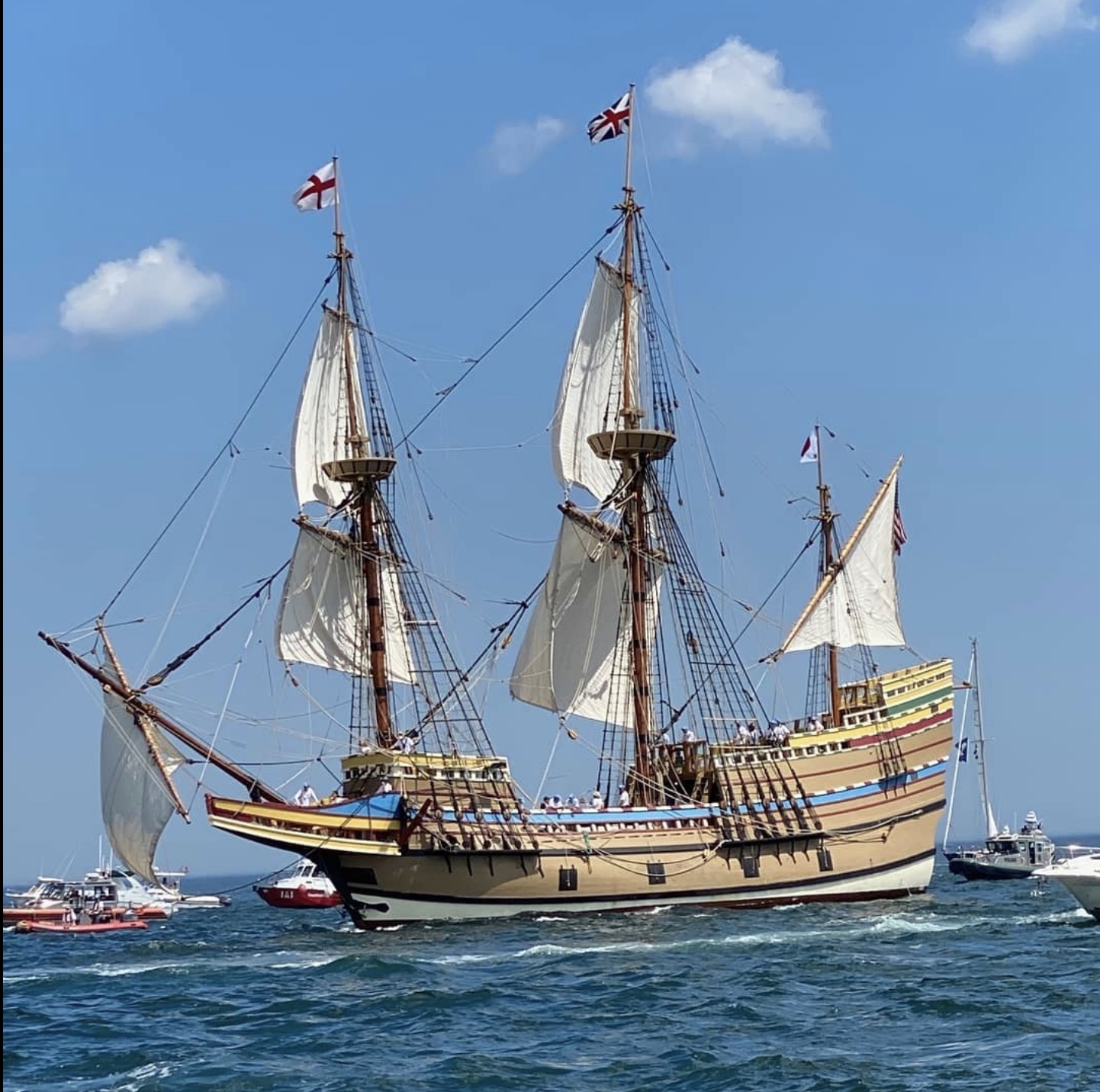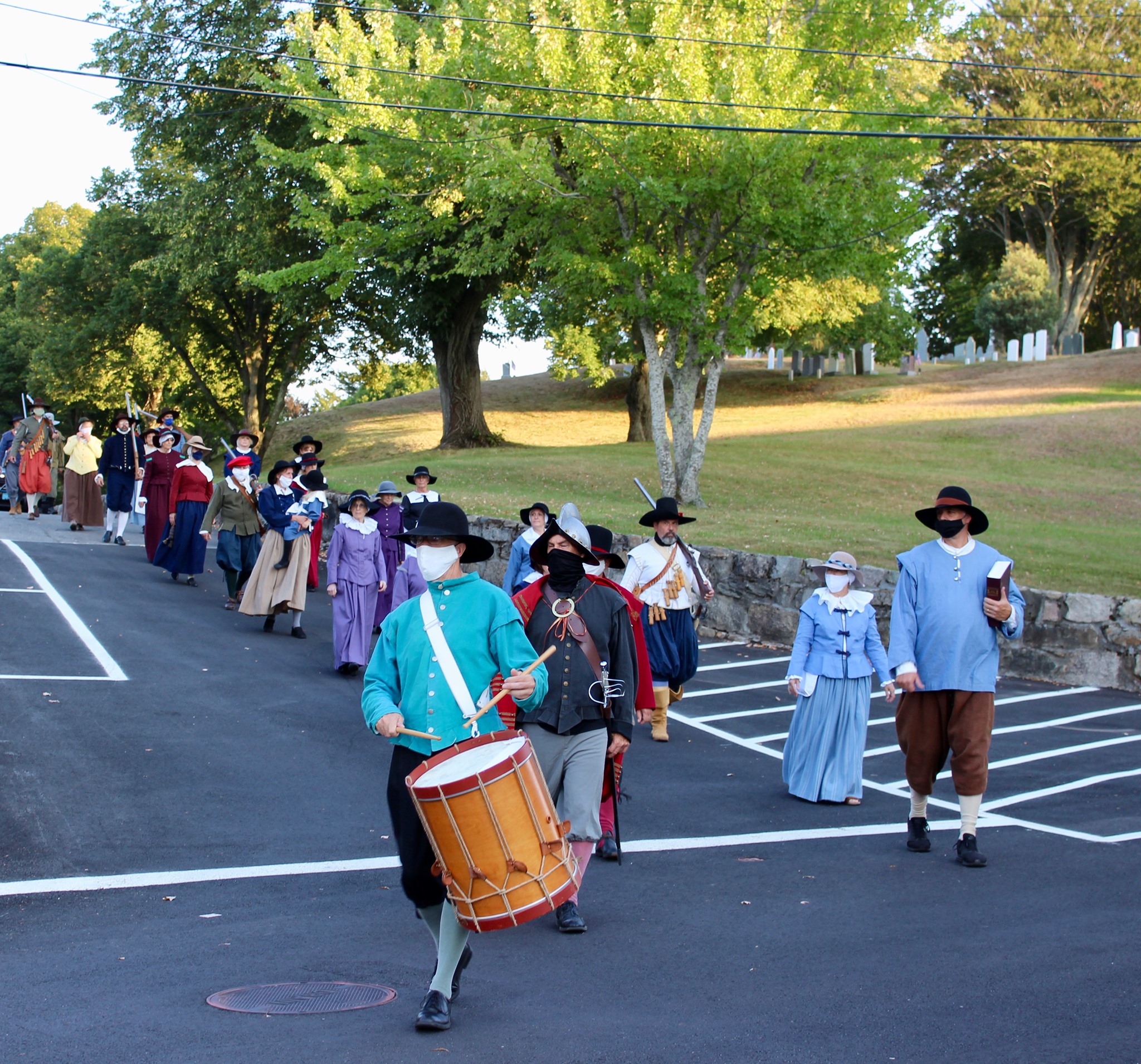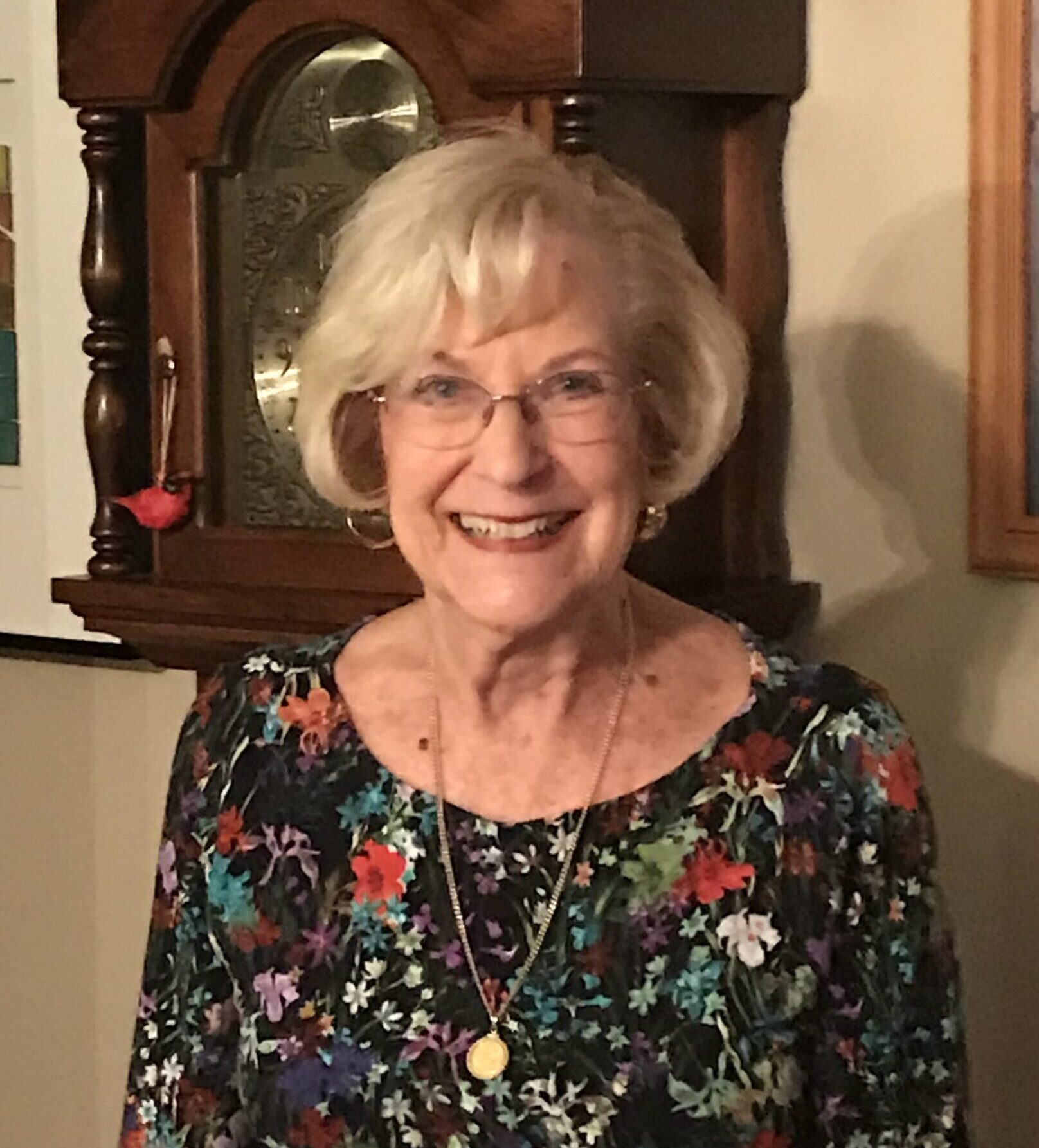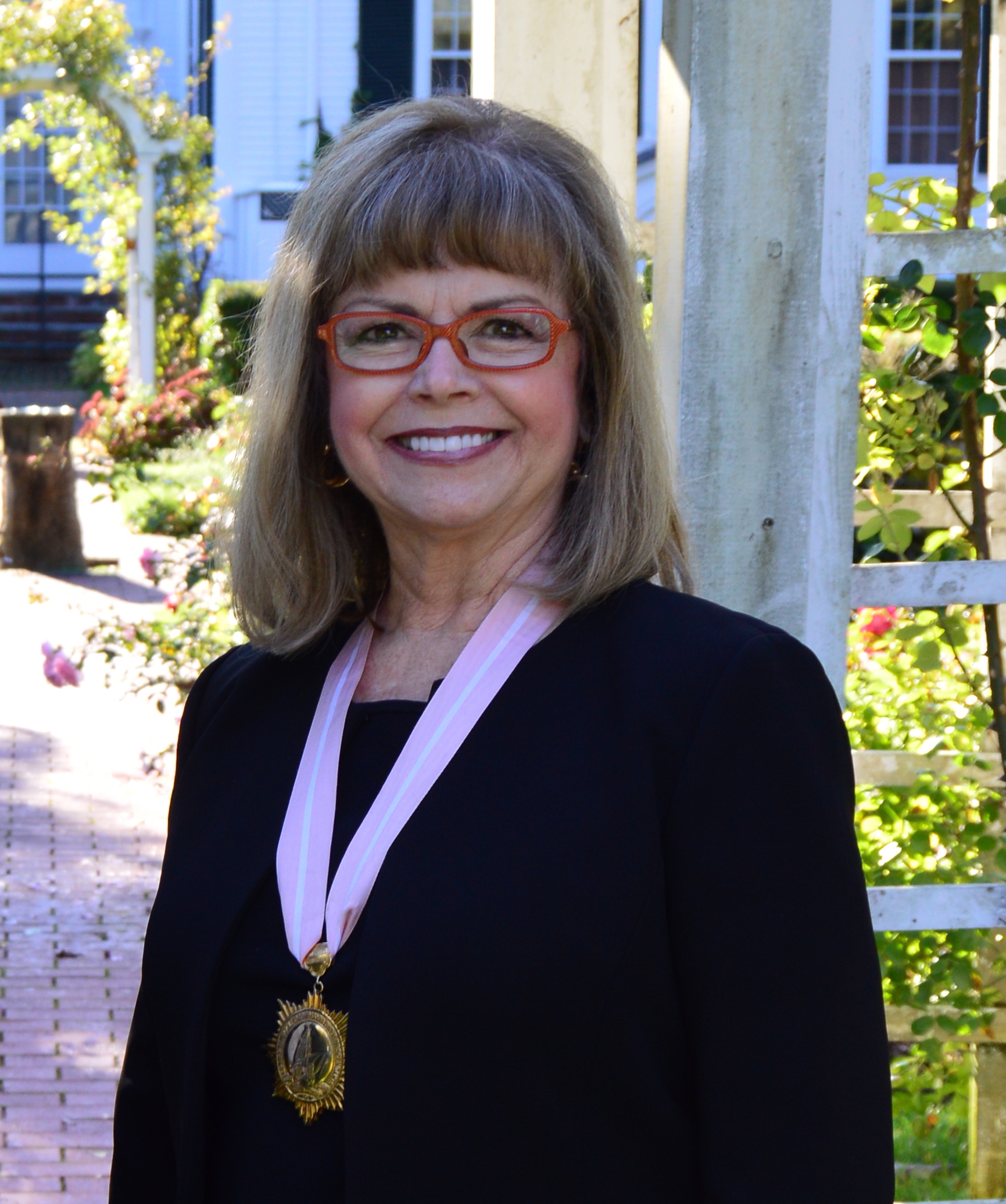
Courtesy photo
The Plymouth II, a 64-year-old replica of the original ship, sails near Plymouth, Mass.

Courtesy photo
Mayflower Society members take part in an event called the “Pilgrims’ Progress” in Plymouth.
As a child in Wichita, Barbara Elliott was fascinated by the story of the Mayflower.
“I thought that the Mayflower was the most wonderful thing that had happened in this country,” she recalled. “They were good people, and they did so much. They had a horrible, horrible time when they first got here. They lost a lot of people. They had so much to learn. They were brave, and they stayed brave and determined that they were going to make it.”
Naturally, Elliott was delighted to find out she was related to some passengers of the famous ship, which arrived in North America four centuries ago. Elliott has been a member of the Mayflower Society since 1976, serving as historian and then governor of the Kansas chapter in the early 1990s.
About 450 residents of Kansas belong to the society, which is headquartered in Plymouth, Mass. Its current governor general is a Kansan — Jane Hurt, who lives in Johnson County. Hurt, whose term extends through 2023, said she is the 35th governor general, the fifth woman and first Kansan to hold that post. Ellsworth attorney John Sherman is the state chapter’s current governor.
Hurt said many more Kansans undoubtedly qualify to join the group, since descendants of the 102 Mayflower passengers are now estimated to number 35 million. The society has about 30,000 members worldwide. Every three years, the society holds a congress in Plymouth, where it has a research library, administration building and memorial house.
To join, applicants must prove their descent to the society’s satisfaction through standard genealogical research. Hurt, who joined in 2011, said the process took her about two years. Hurt said she grew up knowing she had ancestors among the country’s early settlers because her grandmother was a member of the Daughters of the American Revolution, but she didn’t discover a Mayflower link until she was an adult and an experienced family history researcher. She has connections with six ship passengers: William, Susana and Peregrine White; Francis and John Cooke; and Richard Warren.
That’s not an unusually high number because of how the Pilgrims stayed together and intermarried, she said.
“Once you find one, you often find more. But it’s the first one that’s the joy.”
While Elliott cited the hardships endured by the Pilgrims — nearly half died during their first winter in North America — Hurt believes their significance lies in arriving as families rather than as explorers, trappers or proprietors of large land grants from the English crown.
“There were other people who were here first, but the pilgrims were the first to bring families. They’re America’s family. That’s what started things.”
Hurt said it’s also interesting to note, in the current political climate, that the Pilgrims did not arrive as conquerors.
“There’s a lot of talk today about being unified and peace. The Pilgrims had over a half century of peace with their neighbors. They helped each other. Now after that, not so much.”
The later history of conflict and violence between the Pilgrims and Native Americans is important, too, Hurt said.
“I think today sometimes people try to rewrite history. They want to make it attractive. History is not always what we want it to be. It’s the joy and sorrow.”
Elliott, who moved to Linsborg two years ago, remembers hearing her mother mention that her ancestors “came over on the Mayflower” but didn’t look into the possibility in earnest until her own children were grown.
“It was a lot harder then than it is now,” she said of the genealogical research. “I’d go to the library and write letters. There were no computers.”
Eventually, she found three ancestors: William Brewster, Francis Cooke and Richard Warren.
Elliott noted that during her time as state governor, the national society decided to accept descendants of female passenger, and not just male ones, as had been the practice.
“There were men on my board that groaned and fussed, but it got done,” she said.
These days, she’s concerned that the Mayflower story is not being taught to schoolchildren, or at least not given the emphasis it deserves.
Because of the coronavirus pandemic, the society was unable to fully celebrate one significant date: the 400th anniversary of the Mayflower Compact, which was signed by 41 male passengers of the ship on Nov. 11, 1620. It is considered the first document to establish self-government on the continent.
“John Adams called the Compact the foundation of the United States’ Constitution,” Hurt said.
However, the society hopes to mark another event even more associated with the Pilgrims — the first Thanksgiving, held in 1621.










